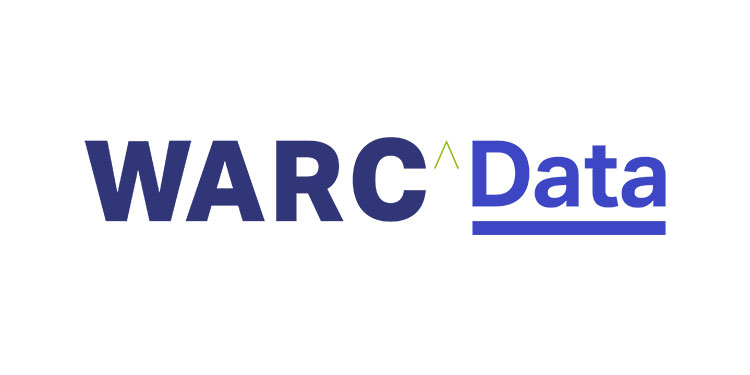International: Advertising spend on e-commerce platforms is set to rise sharply this year despite the global recession – reaching a total of $58.5bn – as brands look to capitalise on the boom in online shopping as a result of the COVID-19 outbreak, finds WARC, the international marketing intelligence service.
Advertising investment across e-commerce sites such as Amazon, Tmall and Rakuten, omnichannel retailers such as Walmart and Carrefour, and social commerce on platforms such as Pinduoduo and TikTok is set to increase 18.3% worldwide, growing 30 times faster than the wider online ad market and in stark contrast to a forecast fall of -8.1% for the total advertising industry this year.
The uptick in e-commerce advertising spend mirrors a rapid increase in online purchasing; consumers will spend an additional $183bn online this year as a direct result of COVID-19 with total e-commerce sales set to rise by 30.4% – $677bn – to $2.9trn worldwide. Brands are flocking to leverage targeted advertising across e-commerce platforms as a means of getting closer to the consumer at the point of purchase.
Alibaba controls the world’s third-largest ad business, Amazon is growing well ahead of Google and Facebook
Alibaba is set to make $23.5bn from selling ad inventory across its e-commerce properties this year, giving it control of the third-largest ad business by revenue, behind only Alphabet and Facebook. Alibaba’s advertising income – across e-commerce sites like Taobao, Tmall and Lazada – is set to rise 6.6% this year, though this a far slower rate of growth than its competitors.
Amazon, the fourth-largest ad seller by revenue, is among the fastest-risers this year – company filings show its ad business grew 4.5 times faster than Facebook and 63 times faster than Alphabet in the first half of 2020. Consequently, Amazon is on course to make $18.1bn from advertising this year, up by 35.6% at a time when the wider internet ad market is flat (+0.6%).
Elsewhere, Chinese social commerce platform Pinduoduo is set to see its ad income leap 33.8% to over $5bn, ahead of local rival JD.com on $3.6bn. None of the e-commerce platforms monitored by WARC is expected to witness a fall in advertising revenue this year.
Consumers will spend an additional $183bn online this year due to COVID-19
Online sales are set to rise 30.4% to $2.9trn worldwide this year, according to data from Edge by Ascential. This represents a forecast upgrade of 8.2 percentage points – $183bn – since the COVID-19 outbreak began. Domestic growth rates range from +19.0% in the UK, to +22.1% in the US and +37.6% in China.
Taken together, e-commerce sales will account for 88% of global retail growth in 2020. The top five platforms will tighten their grip on the market this year, turning over an additional $529bn combined as a result of the outbreak. E-commerce platforms Alibaba (+$221bn), Pinduoduo (+$122bn) and Amazon (+$92bn) have seen the sharpest forecast upgrades since the outbreak.
Advertising spend – particularly within the FMCG sector – is moving online as a result of the shifting complexion of sales since the COVID-19 outbreak. Over 8% of Unilever’s business is now done online – the company made 71% (€2.2bn) of its total 2019 e-commerce sales in just the first six months of 2020.
Livestreams are growing to account for a fifth of Chinese e-commerce while the West has been slow to capitalise on social selling
Livestreamed commerce is booming in China – it is set to more than double to a sales value of $171bn this year. This represents 10.2% of all e-commerce sales today, a share which is set to rise to a fifth (20.3%, $421bn) in just the next two years.
Data from Yimian, a sister company of WARC, show that the top three platforms – Taobao, TikTok and Kwai – will see over two-thirds (69.1%) of all livestreamed sales this year.
COVID-19 has pushed new consumers to the format; three in ten (30%) have spent more than they used to on products sold via livestreams and intend to keep doing so. In total, livestreamed commerce has an estimated audience of 525m, equivalent to 62.8% of China’s online population.

Summing up, James McDonald, Head of Data Content, WARC Data, and author of the research, says: “With ad investment flat or falling across most media in the wake of COVID-19, e-commerce platforms – which have seen penetration balloon – are in a strong position to capture reallocated budgets by using sales data to demonstrate ad performance during a volatile economic climate.”
To visualise the rapid growth of e-commerce platforms, view WARC’s infographic: The difference in advertising revenue per second, pre- and post-COVID; and WARC’s video: Global advertising spend by medium 1980-2020.
A sample report of WARC’s Global Ad Trends: The pivot to e-commerce is available to download here. The full report is available to WARC Data subscribers. This latest Global Ad Trends report complements the recently launched WARC Guide to e-commerce.
Latest information on WARC Data across regions
Global
- Sports sponsorship investment to drop 37%
- TikTok reaches nearly 700m users
- TVs now account for a quarter of YouTube viewing
- 65% of Baby Boomers now gaming due to COVID-19
Americas
- Half of Americans have boycotted a brand
- Canadian TV adspend to record double-digit decline this year
- Financial concerns driving consumer shift to AVOD
- Amazon grows quickest but Loblaw extends its lead in Canadian retail
Asia Pacific
- Mobile video adspend to hit ¥300bn in Japan this year
- One in three will visit the cinema less often after COVID-19
- 15% of urban Indians now gaming for over four hours
- Radio advertising spend in Australia to record first decline in 11 years
Europe, Middle East and Africa
- Three in five EMEA marketers have adopted a mobile-first strategy
- Gaming reach flat or falling across major European markets in July
- Italian advertising spend to drop by 21.7% this year
- Less than 10% of TikTok users follow brands on the platform

















